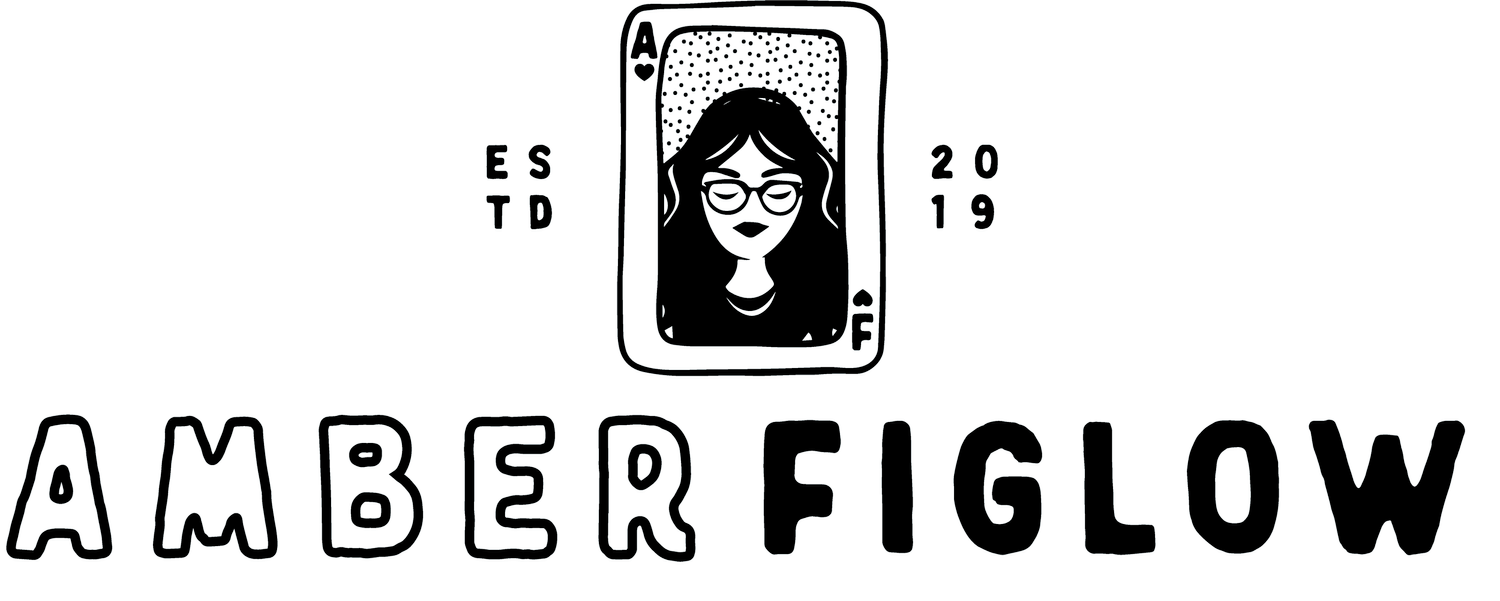Why "Become the Niche" Advice Doesn't Work for Small Business Owners
The secret to standing out on social media isn't actually doing more. It's doing less. I know that sounds backwards, especially when everyone's preaching about niching down or becoming "the niche," but this comes down to one core concept: simplicity.
As a small business owner, I do think you need a niche. But I don't want that to scare you away. Instead, I want to reframe how you approach your niche and show you how it's actually going to help you gain more visibility, not less visibility, by focusing down.
Here's the thing — a lot of advice around niching is tailored toward content creators, influencers, or everyday social media users. But you have to remember that you are a small business owner first. If you want people to remember you, hire you, recommend you, and refer you, you do need to have some sort of specialty so that other people can easily remember it and communicate it for you.
We need to make it stupidly simple for them to understand who you are, what you do, and who you do it for.
Why Most Niche Advice Doesn't Work for Business Owners
There's advice floating around social media that says you don't need a niche because "you are the niche." While that sounds cool and appealing, especially if you're a multi-passionate person, I actually disagree with this statement — at least for small business owners.
A lot of that advice is geared toward lifestyle content creators, influencers, or people where it makes sense for them to become the niche because they ARE the product. They're selling themselves and their personality.
But you're a small business owner. Maybe you have a personal brand, but you need to become known for one thing. One thing that you offer, one thing that you sell, one problem that you solve. And that one thing can be broad — I'll show you how in a minute.
If you're trying to build and grow a business, you have to make it easy for people to understand what problem you're going to solve, how they can work with you, and how they can give you money. "Being yourself" or "being the niche" isn't the problem you solve. It's not what you sell. Being yourself is a byproduct of content creation, not the other way around like it would be for an influencer.
The One Question That Changes Everything
Instead of thinking "I have a niche in blank industry" or "I have a niche in blank topic," I want you to answer this question: What do I want to be known for?
Your mind might immediately go to what you do — what service you provide, what you offer. And honestly, you probably do a lot of things. So this might not be the exact answer. I need you to start thinking bigger picture.
The answer to this question is more important than any algorithm hack, any content strategy, any trending audio. Because if you cannot answer that question in one simple sentence, your audience can't either. They're either confused or it's too complex, and therefore they don't remember what you do. They don't remember it well enough to communicate it to other people.
And that's how you start to build a community — by becoming known for one thing.
How I Applied This to My Own Business
For me, I'm known for content strategy. That's pretty broad, and it's not everything I do as a small business owner. I offer content directing, content creation, consulting, and other services. I talk about repurposing, batching, Canva, tools, all kinds of different things. But it all fits under that umbrella of content strategy.
This positioning was strategic. It wasn't by accident, and it starts to differentiate me from other people in my industry.
For example, Manu of Your Social Team is known for easy content creation through Canva templates and tips. Natasha of Shine with Natasha is known for video strategy. Technically, I do content directing for both of these brands and work with them. A lot of what we talk about and do overlaps. Both of them are my direct competitors fighting for similar audiences.
But because each of us have become known for something very particular within the marketing and social media industry as a whole, we're able to differentiate ourselves. We might provide similar tips, have the same advice, use similar tactics, but we all have our specialties within marketing.
This is why becoming known for one thing is so important. Technically our niches are identical — social media marketing — but we've become known for very specific things.
Why People Need to Categorize Your Business
When people interact with brands online, they like to put us in categories. People's brains want to put us in boxes that are easily identifiable and recognizable. Whether you like it or not, that's the truth.
People want to know what you do so they can easily remember it. Every time they see your face or brand pop up online, they can instantly recognize what kind of content they're about to consume.
This is where most small business owners struggle with this mentality. They feel like they're going to be leaving money on the table by not talking about everything they do.
For instance, maybe you're a photographer, but you also like to do branding and design work. You also have a mini course about productivity as a photographer, and you like talking about motherhood and your fitness journey. Your audience is going to get confused by that very quickly.
They don't know what you actually do, what they should hire you for, and when they should hire you for it. So instead, they're going to hire somebody else whose expertise is crystal clear.
I see this all the time with small business owners — your message is so diluted, you have 15 different links in your bio, you're talking about too many different things that people wonder where the sales are and why they're not coming in. It's because your audience is confused about what you're trying to do.
Simplification doesn't limit your message. If anything, it amplifies it. When you focus on that one clear thing, that one clear thing hits even harder.
Real Examples of Successful Niche Positioning
Let me give you some real-life examples across different industries so you can see exactly what I'm talking about.
The Actress Who Found Her Niche in Cosplay
My sister is a fantastic actress who does everything from musicals to plays. She found a super fun niche on Instagram for her acting over the last couple of years by doing cosplay. She became well known for playing Feyre from the ACOTAR series.
The vast majority of her content and what she's become known for is that character she's roleplaying. She's grown a massive following on both Instagram and TikTok for stepping into this role and creating about 90% of her content around this character.
That doesn't mean she's limiting her acting roles. She still performs in community theater with well-known musicals and plays. She sometimes does other ACOTAR characters and other cosplay characters. She shows up at events and has built a brand in the fantasy cosplay world.
But the one thing she's known for — what gets her foot in the door in other places — is that character. A lot of people might think this is limiting, but she's actually becoming memorable. Her content is shareable and consumable, and she's getting other acting opportunities because of the niche she found.
The Marketer Who Launched a Focused Side Brand
Taylor runs the account @reelstip. She's a well-known marketer who's worked for big names like Later and Girl Boss. She's a great content marketing specialist and strategist who knows social media marketing inside and out.
But she decided to launch this side brand focused entirely on delivering tips about Instagram Reels. She knows so many other things about social media strategy and content marketing, but she dedicated that one brand to talking about just one thing.
It skyrocketed. The account got instant overnight virality, grew super fast, and she found success by finding that focused niche.
The Lifestyle Influencer with a Clear Framework
One of my favorite lifestyle creators, Musings of a Curvy Lady, talks about many different things — fashion, travel, fragrance, makeup. You might think those are all different niches, but her actual niche is navigating the world as a curvy lady.
Even influencers are tapping into this specialty of becoming known for one thing and having multiple topics that fall underneath it.
How to Simplify Your Own Brand
So how do you actually do this? How do you simplify your brand without limiting your opportunities?
Step 1: Identify Your Superpower
What's the one thing you are genuinely super good at that relates to your business or the reason you started your business? What would your family and friends say you do? What would they say is your superpower? What would colleagues, old clients, or referrals say? How would they talk about you?
Step 2: Audit Your Current Online Presence
Look at what's in your bios, handles, and profiles. Audit what's happening currently and how you're outwardly projecting yourself. See if it needs refinement. Is it clear? Is it confusing? If you landed there as a complete stranger, would you understand what this person does and what problem they might solve?
Step 3: Create Your One Thing Statement
I know you've heard this before, but it's a helpful exercise. Come up with your one thing statement. It's as simple as: "I help [this person] with [this problem]." Keep it simple.
Step 4: Filter Your Content Ideas
Start filtering your current content ideas through the lens of what you want to be known for. Think to yourself: if I posted this, does it align with that statement? Does it align with the thing I want to be known for? If it doesn't, maybe skip it for now. You can always revisit it, but start finding content that really speaks to your niche.
Step 5: Make It Easy for Others to Talk About You
Make it easy for other people to refer you. If I wanted to refer you to one of my friends, what's that one simple statement, that one simple sentence, that one keyword I could easily and quickly use in conversation? How would I introduce you? How would I refer my friend to work with you?
You Can Still Do Multiple Things
I know what you're thinking: "I do multiple things. I don't want to limit myself." You can still do multiple things. I'm not telling you to scratch entire sides of your identity or business. But I want you to lead with your main thing. It's going to hook the right people in.
Naturally, you can bring up other things in conversation, in the relationships you build online, and maybe eventually in some content. But you first have to become known for one thing.
Why Simplification Actually Amplifies Your Message
Becoming known for one thing actually gives you more freedom than you think. Once people understand your superpower and the general thing you're the expert in, they'll follow you anywhere. Platform to platform. You can introduce new topics, talk about different things, but you're still known as the person who does this one thing they absolutely love and need.
The bottom line is that simplification is how you're going to stand out in a noisy world of social media. You have to stop being everything to everyone because then you're actually talking to no one. You're not connecting. You're not resonating by trying to talk to the masses. Pick your thing. Own it. Make it as clear as possible what you want to be known for.

